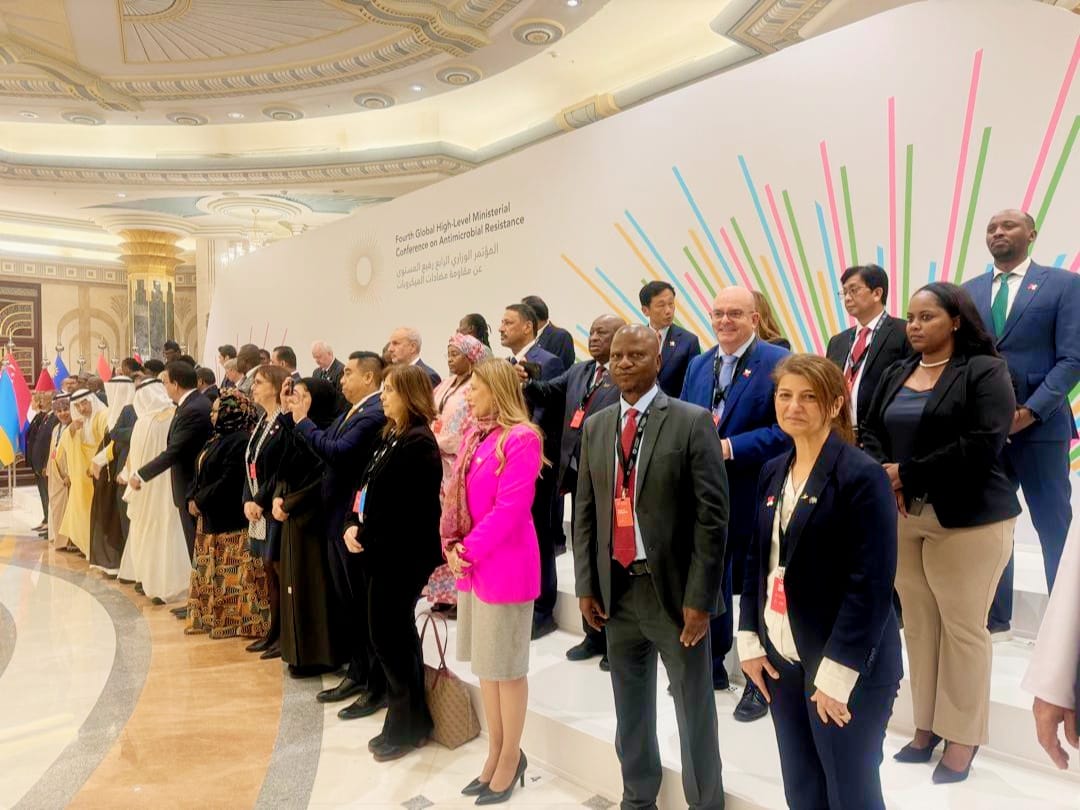By Ncaba Ntshakala
The Minister of Agriculture, Mandla Tshawuka, delivered a compelling address at the 4th High-Level Ministerial Conference on Antimicrobial Resistance (AMR) held in Jeddah, Saudi Arabia, expressing the nation’s commitment to combating the global threat of AMR.
Representing Eswatini on the international stage, Tshawuka emphasized the country’s proactive stance in addressing the challenges posed by AMR through a collaborative One Health approach, which integrates human, animal, and environmental health strategies.
Drawing on Eswatini’s experience with drug-resistant tuberculosis, Tshawuka highlighted how the issue of AMR transcends sectors, impacting both agriculture and human health.
“We have the example of drug-resistant TB, which troubled us for some time. This illustrates that the problem covers both agriculture and human health, and we have always dealt with it as such.
RELATED: Ministry of Agriculture issues key guidance for farmers as ploughing season begins
That is partly why it is the Minister of Agriculture addressing this forum today,” he stated, where he marked the kingdom’s holistic approach to the issue.
Tshawuka also acknowledged the hospitality of the Kingdom of Saudi Arabia and the importance of the conference as a platform for global leaders to craft actionable strategies against AMR.
“We bring greetings from the Kingdom of Eswatini. We also express our gratitude to the Kingdom of Saudi Arabia for hosting this excellent conference and the hospitality extended to us,” he said, setting a tone of collaboration and mutual respect.
Eswatini which is wa low- and middle-income country (LMIC), faces unique challenges in combating AMR.
These include a high burden of infectious and non-communicable diseases, limited healthcare resources, and inadequate infrastructure for surveillance and reporting of AMR trends.
The Minister pointed out that the country’s heavy reliance on food imports adds another layer of complexity, as it limits control over the production systems of consumed commodities.
Despite these obstacles, Eswatini was said to remain strong in its fight against AMR, guided by its National Action Plan aligned with the World Health Organization’s Global Action Plan on AMR.

The Minister expressed Eswatini’s full support for the commitments outlined in the Jeddah Declaration, but he urged the global community to transition from declarations to tangible actions.
“We believe we should now move beyond declarations to concrete and tangible actions to secure the desired future,” he stated.
Tshawuka outlined key steps necessary to achieve this goal, including unlocking funding, increasing manufacturing capacity, improving access to technology and innovation, advancing research and development, and ensuring equitable access to resources and amenities.
RELATED: Agriculture budget should be 10% of national budget – MP
As part of the bigger conversation, Tshawuka advocated for equitable implementation strategies tailored to the needs of LMICs, distinguishing this approach from equality-based measures that may not adequately address disparities.
He reminded attendees of the interconnected nature of the modern world, where diseases can traverse borders with ease, and reiterated the importance of the globally adopted One Health approach.
“The world has become a global village, allowing disease to travel easily and quickly between countries and continents.
Therefore, the One Health approach, adopted globally, is our only hope as countries, regions, and the world.
We need to roll up our sleeves and implement it so we can safeguard the world against AMR, for ourselves and for posterity,” Tshawuka concluded.


